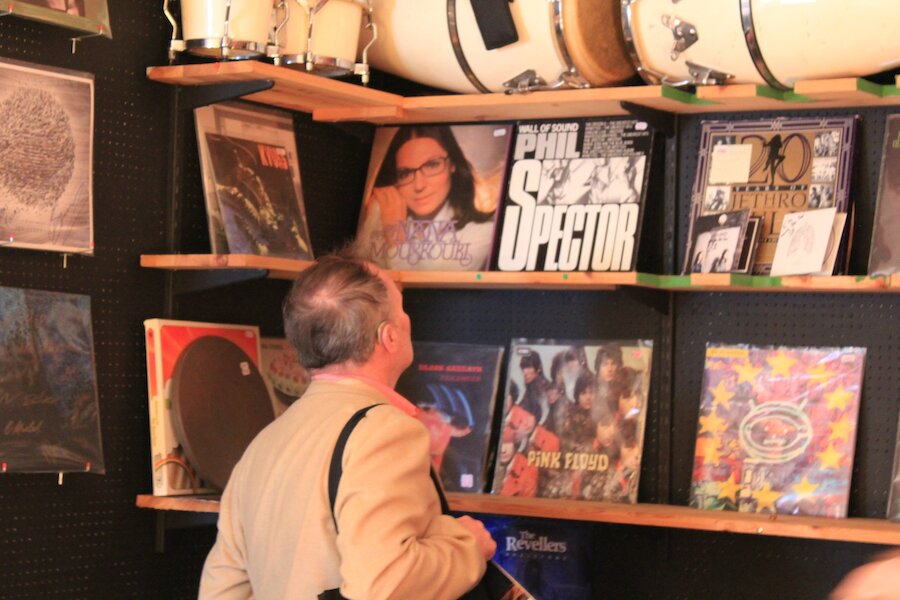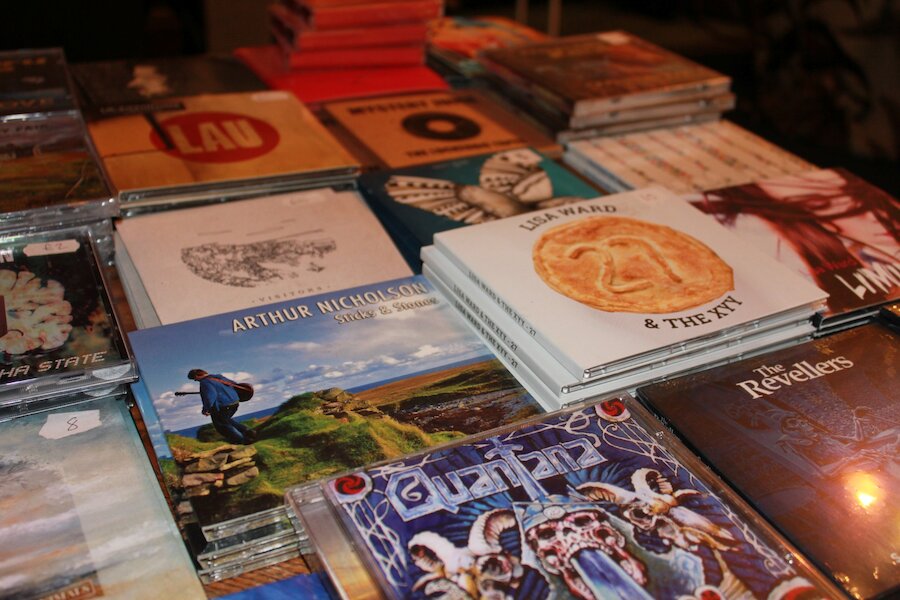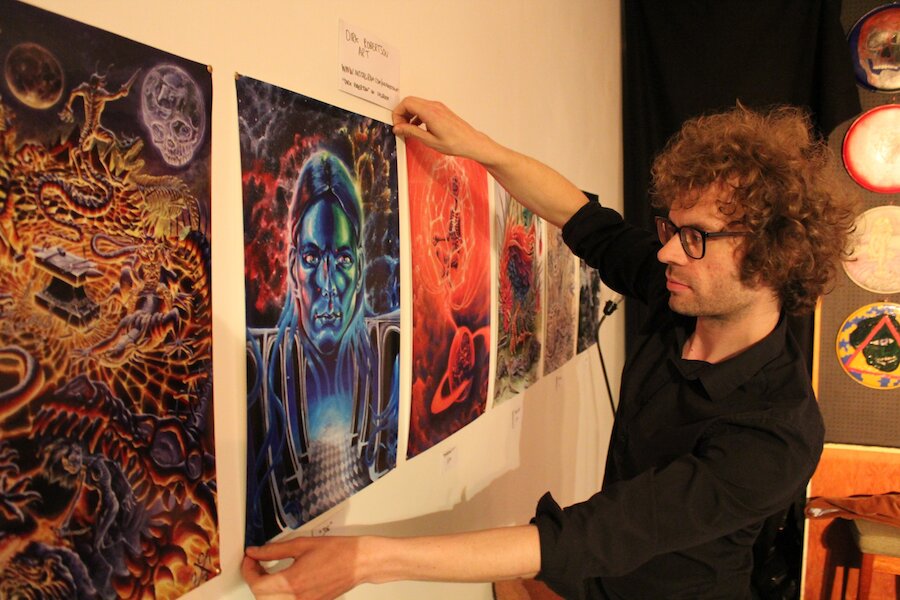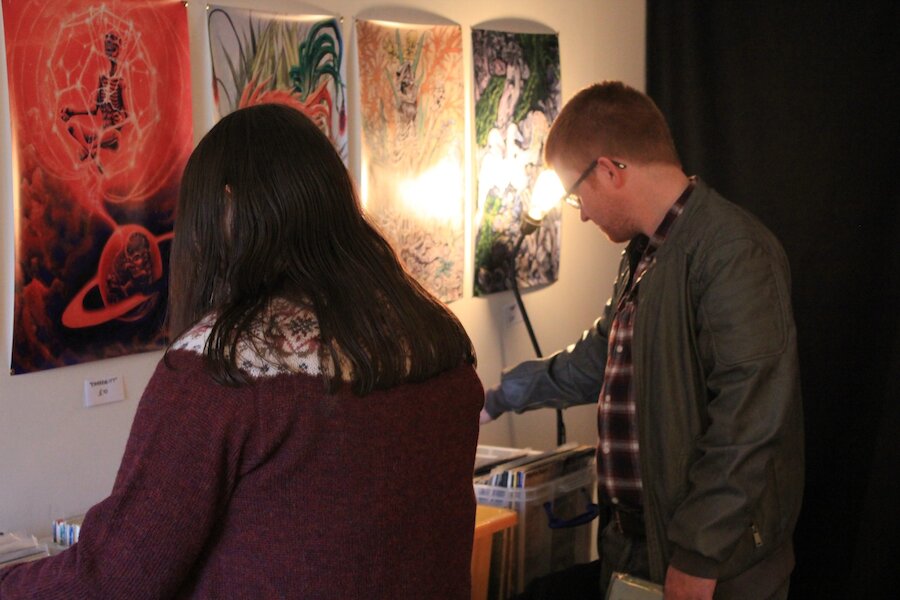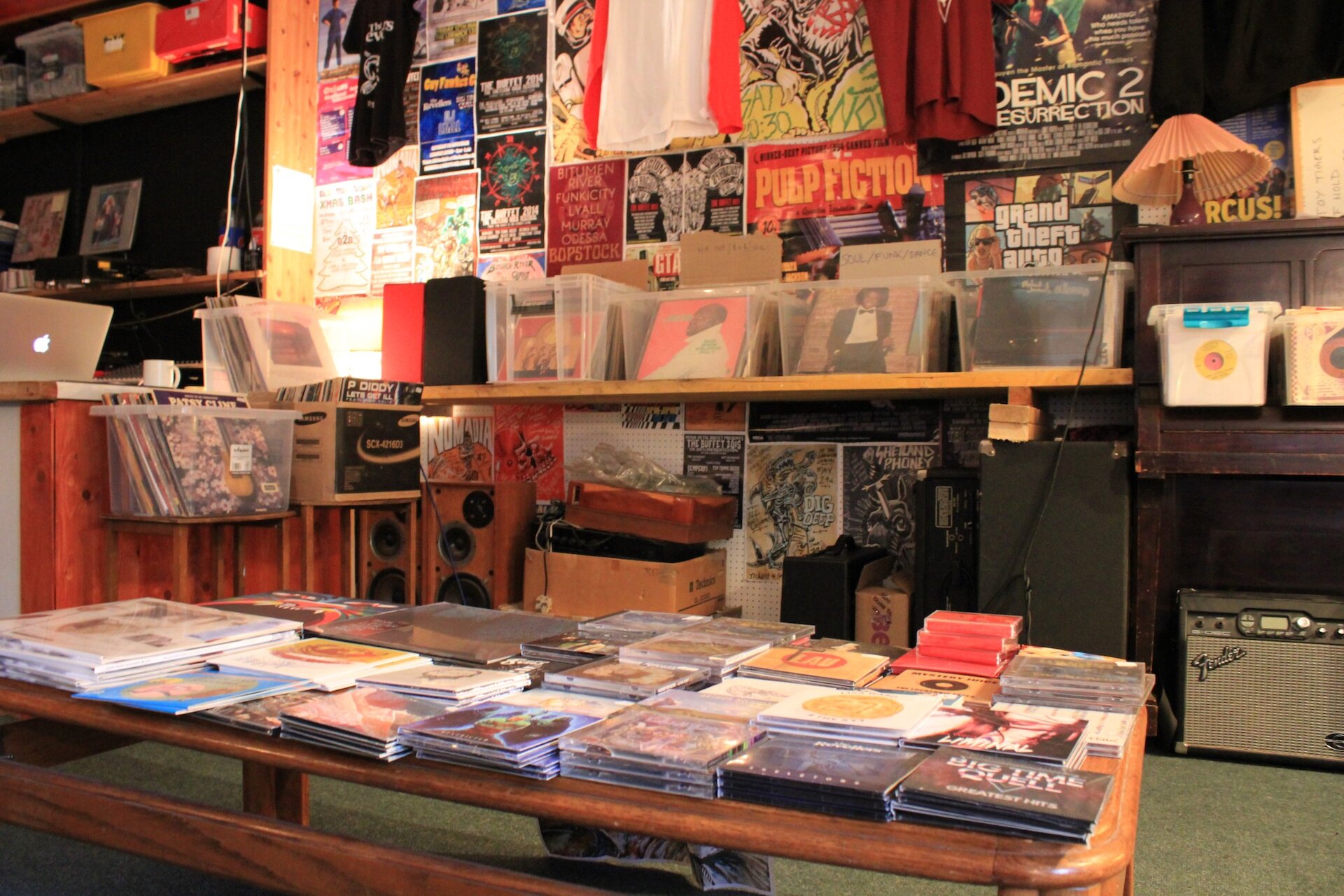Independent record shops are an endangered species in the UK. Despite the recent renaissance of vinyl records, rural areas have been hard hit — there are few places lucky enough to still have a proper record shop.
As with many things, Shetland is one of those lucky places. Since 2017, The Bop Shop has been Shetland’s mecca for music fans, with monthly openings and a unique not-for-profit business model.
For quite a while, it didn’t seem that way. The last record shop in Shetland, Clive’s Records, closed its doors in 2011. As any true music fan knows, the internet can’t replace the smell of vinyl, the sound of the records being riffled through, or the chatter of the record store regulars.
In 2017, a small band of local music-lovers turned it around. DJs and musicians Jamie Hatch, Thomas Jones, and Lyall Halcrow took on the lease of the Bop Shop — a small retail unit just off Lerwick’s historic Commercial St which had formerly been the headquarters of the Shetland Jazz Club.
“What we originally were thinking was [to] have it as a creative space,” Lyall said, “where people could come and use it as a studio, or just however they wanted to use it. And then we thought: ‘It’s kind of weird that in Shetland there’s no second-hand record shops, and let’s have a go at opening one of those…’”
